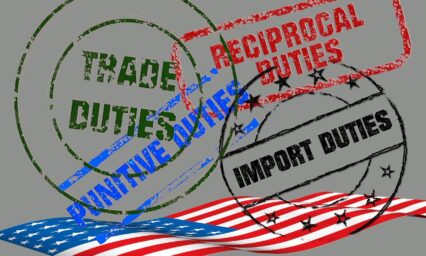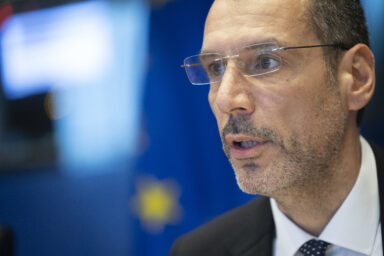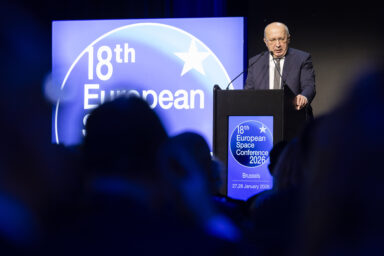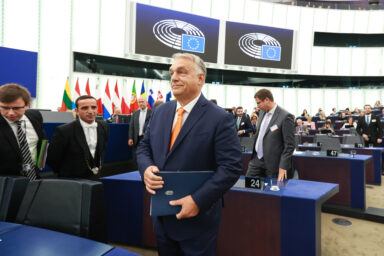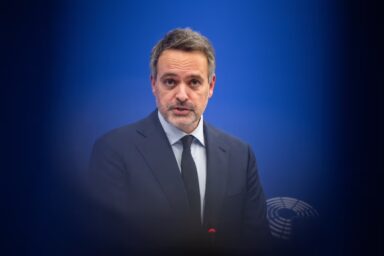The Union must improve the way its internal market works, parliamentarians agree. Their preferred solutions, however, split along usual ideological lines. Thursday’s debate, likely inconsequential, featured calls for deregulation, smarter regulation, and even a challenge to “get off the couch and run“.
The European Parliament heard on Thursday, 11 September a debate on an own-initiative report on the funtioning of the Union’s internal market. The Committee on the Internal Market and Consumer Protection (IMCO) submitted the report. “With 450 million inhabitants in 27 member states, the EU is one of the world’s largest economic blocs,“ the explanatory statement read. “We meet all the prerequisites to compete well globally, but we have a single market whose full potential is not being exploited. That means that we are falling short of the level of competitiveness that we could achieve and the economic growth that we could create.“
Thursday‘s debate itself mirrored the statement closely. Anna-Maja Henriksson (Renew/FIN), the rapporteur, defied no expectations by stressing the need to bolster Europe’s internal market. “We have all of the conditions in place to do well in global competition, but we have an internal market which dose use its full potential,” she said. The Swedish-speaking Finnish member called for slashing red tape to help small firms and ensuring new laws promote innovation. “Digitalisation and artificial intelligence could ease reporting,” Ms Henriksson noted, while warning that Russia’s war in Ukraine demands a resilient Europe.
Beyond the verbal level
Commissioner Piotr Serafin welcomed the report’s alignment with the Commission’s single-market strategy. “Our core message is clear. It’s time to choose Europe,” he said, adding that dismantling barriers—the so-called Terrible Ten—to trade and services remained a priority. He backed smarter rules over deregulation: “While upholding high standards, we should strive to simplify.”
MEP Henrik Dahl (EPP/DNK) then praised the push for competitiveness but lamented political resistance. “These negotiations are, to put it diplomatically, quite difficult,” he said, blaming the S&D group for blocking proposals. “When the weak growth numbers come in next time, I think we should all take a close look at S&D and point our fingers at them.”
You might be interested
Adnan Dibrani (S&D/SWE) countered that simplification must not undermine standards. “Swedish companies should not suffer from difficult rules, but we need smarter rules, not worse rules,” he argued. He highlighted Sweden’s high innovation despite strict regulations, adding: “We need to spread that across the EU.”
Big words, bold promises, no execution. — MEP Reinier van Lanschot (Greens-EFA/NDL)
Piotr Müller (ECR/POL) decried new green rules as harmful. “Businesses aren’t unable to compete…there is protectionism,” he said, citing transport directives that allegedly disadvantage Polish firms. “If we really want to compete with the US and China, we have to build a real single market—not only at the level of the words,” the Polish Conservative member insisted.
Get off the couch and run
Speaking on behalf of his group, Nikola Minchev (Renew/BGR) highlighted citizen disillusionment. He recalled his fellow Bulgarian students’ surprise at price disparities between Sofia and Brussels. “Citizens’ confidence in the single market is essential,” Mr Minchev said, before urging action on “market failures that cost us billions of euros every year”.
MEP Reinier van Lanschot (Greens-EFA/NDL) mocked the EU’s inertia with a jogging metaphor: “Sometimes I tell my friends I’m going for a run. But instead, I end up on the couch eating a bag of chips, watching The Hangover for the 15th time. When it comes to the single market, this is exactly the EU. Big words, bold promises, no execution.” He called for a capital-markets union and simpler tax rules, warning: “Our own internal trade barriers are costing us three times as much as American tariffs.” Mr van Lanschot’s oratorical finale brought the jogging metaphor back. “Get off the couch and start running,“ he said.
Deregulation moves power away from all of us to companies. — MEP Hanna Gedin (Left/SWE)
MEP Hanna Gedin (Left/SWE) represented the only faction to reject deregulation outright as a false solution. “Deregulation moves power away from all of us to companies,” she argued, citing failures in rail privatisation and welfare. “Society is at its best when it is run by rules and common decisions with solidarity for one another, not deregulation.”
Competing visions
The debate thus underscored competing visions: centre-right calls for leaner bureaucracy clashed with left-wing warnings against eroding public safeguards. Yet all agreed the single market’s untapped potential risks leaving Europe behind in a turbulent world.
An own-initiative report allows members MEPs to propose non-binding resolutions or recommendations on issues within the EU’s competences without a formal legislative proposal from the European Commission. These reports let the Parliament shape debates, pressure the Commission to act, or signal priorities to other EU institutions.
When the weak growth numbers come in next time, I think we should all take a close look at S&D and point our fingers at them. — MEP Henrik Dahl (EPP/DNK)
While legally non-binding, the own initiatives carry political weight by framing policy agendas, testing legislative ideas, and rallying public or institutional support. If adopted, they become the Parliament’s official positions. Historically, own-initiative reports have spurred landmark legislation—such as the General Data Protection Regulation (GDPR)—by compelling the Commission to table proposals. However, their impact hinges on the Commission’s willingness to engage. The Commission must respond formally to such reports but can ignore them.

